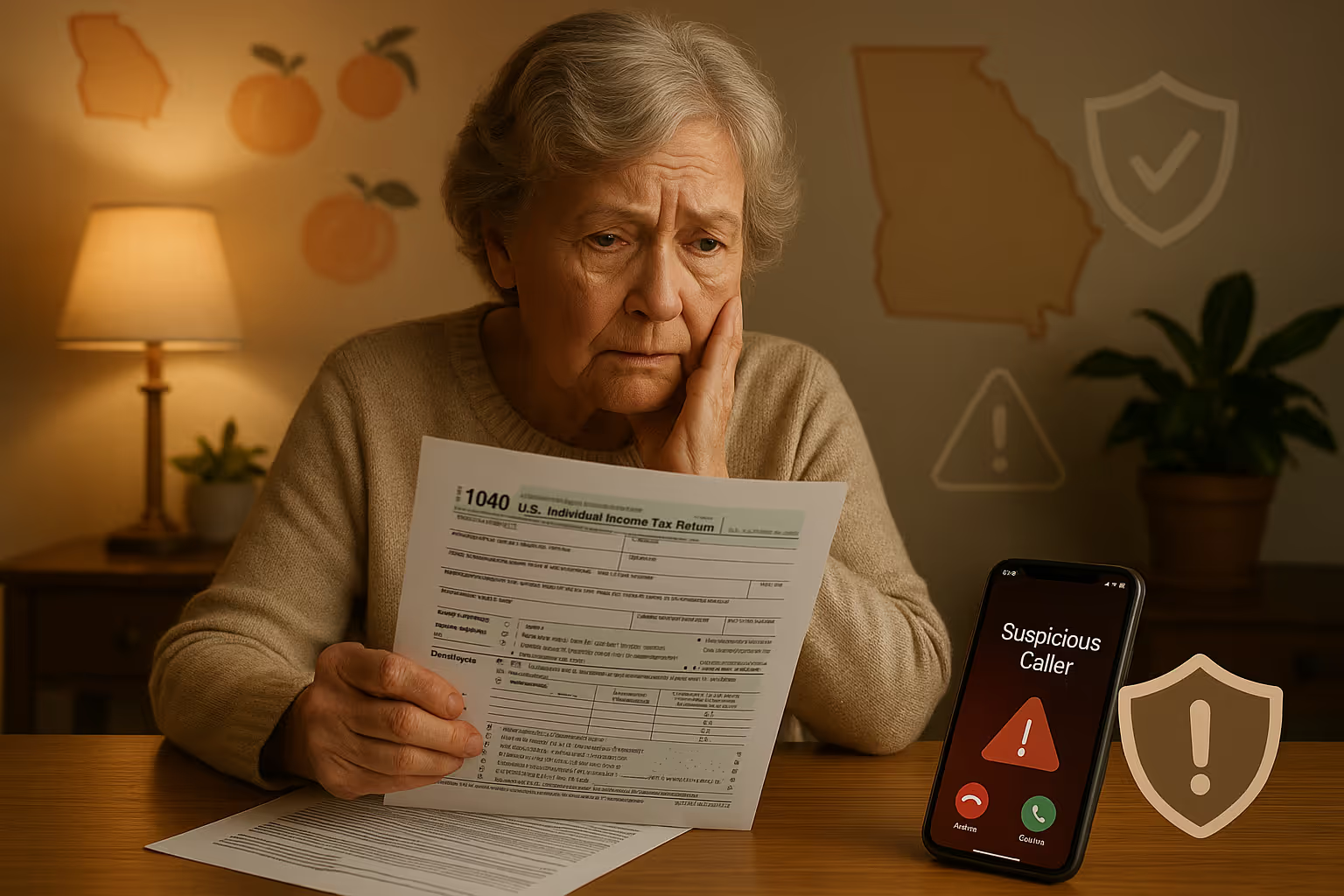Georgia Officials Warn of Rising Tax Scams Targeting Seniors in 2025 Tax Season



Georgia’s Department of Revenue and the IRS are warning the public about a surge in Georgia tax scams targeting seniors as the 2025 tax season begins. Officials say scammers are posing as government representatives through phone calls, texts, and emails to steal personal or financial information, often pressuring older adults with threats of arrest or loss of benefits.
Scammers pose as the IRS or Georgia tax officials using spoofed phone calls, text messages, or suspicious emails. They apply scare tactics, such as threats of arrest, lawsuits, or license revocation, to push victims into immediate payment through wire transfers, prepaid cards, or gift cards.
One common form of tax fraud involves stealing a Social Security number or accessing stolen tax records. With this information, identity thieves can illegally file a tax return, creating duplicate filing issues, false tax bills, and stolen tax refunds. Many victims only discover the fraud when their legitimate return is rejected.
Fraudsters also send counterfeit IRS letters that demand payment or sensitive information. Others promote abusive tax schemes, promising inflated refunds through false deductions or fabricated casualty loss claims, exposing taxpayers to penalties and money loss.
Criminals frequently use fake charities to solicit donations, often targeting older adults. These scams blend emotional pressure with fraudulent promises, diverting funds from legitimate organizations and exposing victims to further identity theft.
According to federal and state officials, identity thieves often use stolen Social Security numbers to commit tax-related identity theft. With access to a victim’s tax records or social security card, scammers can file a false tax return early in the tax season, claiming a fraudulent refund before the real taxpayer submits their form. Victims may later receive a surprise tax bill or an IRS notice about a duplicate filing, only to realize their information has been misused.
Authorities urge taxpayers to stay alert for common warning signs. Red flags include demands for immediate payment, threats of arrest via phone calls or text messages, and instructions to click links or download attachments from suspicious emails. Criminals may also use counterfeit IRS letters or request sensitive information under the guise of verifying accounts or processing a refund.
Fraudsters frequently promote fake charities or disaster relief appeals as part of phishing schemes. They may pressure victims to donate money or provide financial information. Officials emphasize that such tax-related scams not only defraud donors but can also expose victims to further attempts at identity theft.
The IRS warns it will never initiate contact with taxpayers through email, social media, or text message, nor demand immediate payment by wire transfer or gift cards. Official notices come by mail, usually as an IRS letter explaining a tax bill or refund adjustment.
The Georgia Department of Revenue echoed the federal alert, stressing the impact of tax fraud on state resources. Officials advise seniors to work with trusted tax professionals or a certified tax preparer while remembering that they are ultimately responsible for the accuracy of their tax returns and records.
Filing a tax return early is one of the best defenses against identity thieves who try to claim false tax refunds. Seniors should ignore unexpected calls, texts, or suspicious emails demanding immediate payment or sensitive information.
The IRS stresses that it will never initiate contact by email or social media, nor request wire transfers or gift cards. Taxpayers should verify any IRS letter or request for financial information through official government channels.
Working with a trusted tax preparer or certified tax professional can help, but individuals remain ultimately responsible for accurate filings. Regular checks of credit reports and accounts are also recommended to detect early signs of fraud.
Taxpayers who suspect tax scams should report them to the Treasury Inspector General for Tax Administration (800-366-4484) or the National Elder Fraud Hotline (833-372-8311). Fraudulent phone calls, suspicious emails, and fake IRS letters should be treated as red flags.
For verified information on tax fraud, identity theft, and prevention tips, visit:
Both agencies stress that the best way to protect against becoming a victim is to recognize warning signs and verify any unexpected contact.
By William Mc Lee, Editor-in-Chief & Tax Expert—Get Tax Relief Now